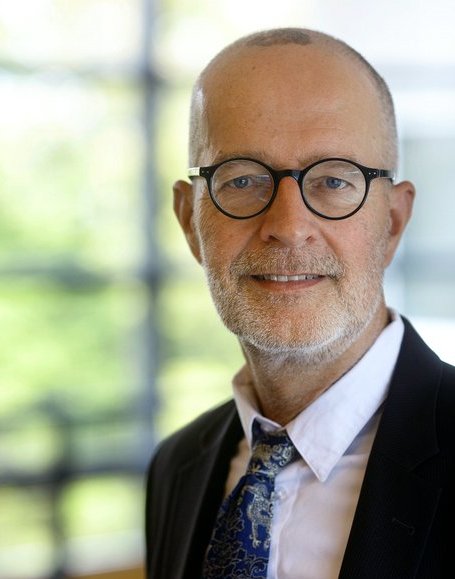‘There are too few generalists in academia’
Bert van Wee has been named Professor of Excellence 2020. What are his views on his doctoral candidates and the influence of coronavirus on transport systems?
Professor of Transport Policy in the Faculty of Technology, Policy and Management since 2003, Bert van Wee is well known outside the university for his many media interviews about developments in transport. He is capable of putting the news into context, clearly and cogently.
According to the Delft University Fund, which awards the prize annually to a professor who excels in research and teaching, Van Wee has ‘made an indelible mark on the international, national and Delft transport community’. The Fund praised his ‘constant drive to improve teaching, including his own’ and the ‘engaged and critical, but also positive, way in which he supervises his graduates and doctoral candidates’
When did you decide to specialise in transport?
“I graduated in human geography in 1983, when the recession had hit the employment market. I was asked to take on a student job at a research consultancy specialising in transport: doing traffic counts, measuring speed and demand for parking - simple work. It suited me while I was looking for a job, but I soon really took to it. I was offered a contract, did some courses and became project manager. I ended up in transport research by accident.”
You’re often called on for media interviews. Do you always have your story ready?
“I often need to check the exact figures. A journalist will ask if driving faster is more dangerous. The answer’s yes, because every kilometre above 100 km/h increases fatal accidents by three to four percent. I then have to check if it’s 3.2 or 3.6 percent, but they often don’t mind about the exact numbers.”
Will coronavirus permanently affect our transport system?
“You need to draw a distinction between people’s patterns of activity and travel behaviour on the one hand and the transport system on the other. There are some indications that we can expect long-term changes in people’s activities and the way they travel. People are using the train less and are no longer taking international flights for activities that can be done another way. I expect to see an increase in the use of online resources, in other words teleworking, rather than coming to campus, in our case. If we end up permanently avoiding the rush hour by working from home or leaving at different times, that will make capacity increases in the transport system less financially viable.”
What characteristics do you insist on from your doctoral candidates?
“They all need to abide by the ethical guidelines, such as ensuring research can be reproduced. I also select based on certain characteristics. Can a doctoral candidate apply theory to support their argument and devise effective research methods? Do they know exactly what lies at the core of their research? Ideally, they should be able to write decent English. Social skills are also important. Some people are loners who shut themselves away and come up with amazing things, but, at TPM, we do research that’s socially relevant. That means it’s useful to be able to communicate and explain why you’re carrying out a study and why it’s relevant.”
The title Professor of Excellence assumes intensive contact with graduates and doctoral candidates. How has that worked out recently?
“There’s been a lot of email and online consultation. My actual visits to Delft have been very rare.”
Was that enough?
“Yes and no. It’s possible to share ideas and knowledge remotely. The personal side goes less smoothly. Every year, there are occasions when a student bursts into tears during a meeting, but that doesn’t happen online. Online, people are more reluctant to let you know if they have issues or are at risk of getting bogged down.”
You have only four years to go before retirement. What else do you want to achieve?
“I’m currently supervising 16 doctoral candidates and will continue that work. I also want to update a textbook from 2013 about the transport system. I co-edited it with TPM colleague Jan Anne Annema and David Banister from Oxford University. I’m an extreme generalist, as is Jan Anne Annema. I want to nurture new generalists to prevent a gap appearing when we leave.”
How do you make someone into a generalist?
“By encouraging them to explore different areas and teaching them to select quickly. There’s an awful lot being published about transport, in the air, water and on the roads. It’s also important to understand how things interrelate, as this helps the pieces of the puzzle to fall into place. This can be painstaking work: reading the literature, lecturing on different subjects and supervising graduates on many different topics.”
Can a single person do that?
“When I became a professor, people said: you need to concentrate on a single topic or you’ll never make it into international scientific journals. I’ve proved that’s not true.”
